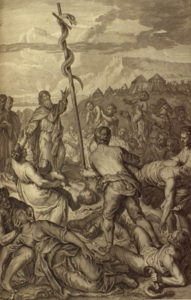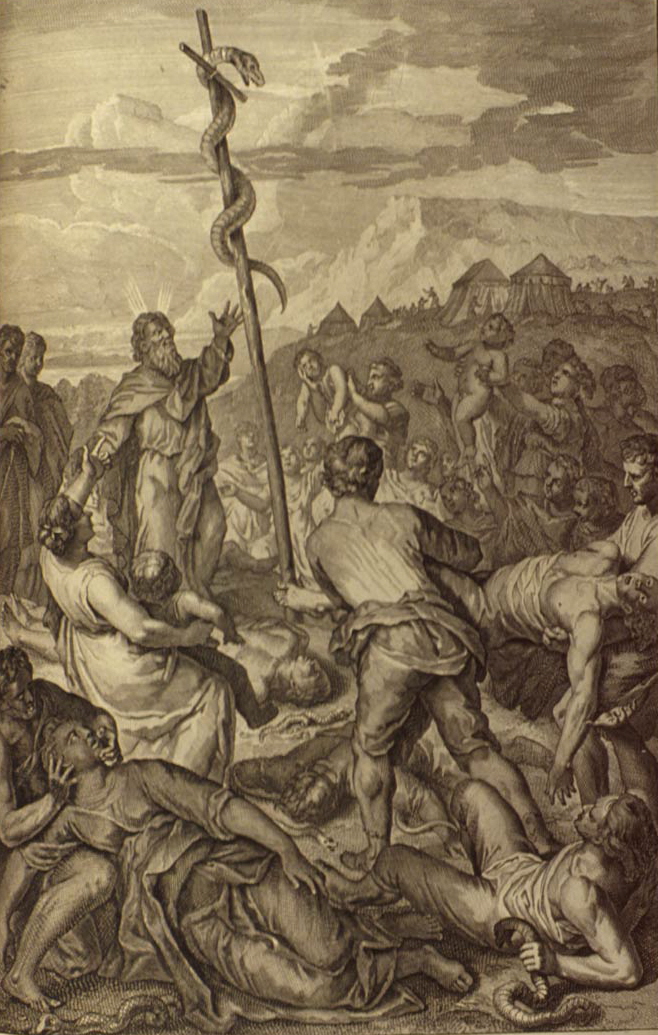 We all sort of “know” but still very often forget that God and religious and spiritual truths are couched in symbols, language, propositions, metaphors, stories, and ritual actions, meaning that, by definition, a religion’s primary languages themselves are not meant to be taken literally. Words and stories and teachings are not the things in themselves but rather pointers toward them, guides for us to experience these beings and powers more directly and “learn” them for ourselves. In a provocative post a couple of weeks ago on the Rational Faiths blog, “Mormonism as ‘Metaphor and Sacrament’,” Benjamin Knoll introduced writings from scripture, a mystic, a Christian theologian that all made this point about the need to remember to not mistake the pointers for the real thing, to center in relationship with God/Spirit rather than the forms of language and praxis that are central in religious lives. From part of a quotation by Marcus Borg cited in the post: “The Christian life is about a relationship with the one whom the Bible both points to and mediates—namely, a relationship with God as disclosed through the Bible as metaphor and sacrament. To be Christian is to live within this tradition and let it do its transforming work among us.” For Borg, a sacrament is “something visible and physical whereby the Spirit becomes present to us. A sacrament is a means of grace, a vehicle or vessel for the Spirit.”
We all sort of “know” but still very often forget that God and religious and spiritual truths are couched in symbols, language, propositions, metaphors, stories, and ritual actions, meaning that, by definition, a religion’s primary languages themselves are not meant to be taken literally. Words and stories and teachings are not the things in themselves but rather pointers toward them, guides for us to experience these beings and powers more directly and “learn” them for ourselves. In a provocative post a couple of weeks ago on the Rational Faiths blog, “Mormonism as ‘Metaphor and Sacrament’,” Benjamin Knoll introduced writings from scripture, a mystic, a Christian theologian that all made this point about the need to remember to not mistake the pointers for the real thing, to center in relationship with God/Spirit rather than the forms of language and praxis that are central in religious lives. From part of a quotation by Marcus Borg cited in the post: “The Christian life is about a relationship with the one whom the Bible both points to and mediates—namely, a relationship with God as disclosed through the Bible as metaphor and sacrament. To be Christian is to live within this tradition and let it do its transforming work among us.” For Borg, a sacrament is “something visible and physical whereby the Spirit becomes present to us. A sacrament is a means of grace, a vehicle or vessel for the Spirit.”
In this episode, Benjamin Knoll, Brian Hauglid, and Susan Meredith Hinckley join Mormon Matters host Dan Wotherspoon to talk about this paradigm–and especially possibilities of it finding more of a home within Mormonism, for this might be quite helpful to many Latter-day Saints struggling for breathing room within a church culture that emphasizes literalness of most scriptural stories and various truth claims. The panel also evaluates the weaknesses of this model and drawbacks that many would see should too many church members come to hold this view. How might a “metaphorical and sacramental” view change one’s interactions with the institutional church, with LDS scriptures, with our wards and branches, with various behavioral expectations in contemporary Mormonism?
It’s a lively discussion that we hope you will join in through the comments section below!
Links to items referenced in these episodes:
Benjamin Knoll, “Mormonism as ‘Metaphor and Sacrament’,” Rational Faiths blog, 2 February 2017
“Theory of Religious Economy,” Wikipedia (relates to issues of stricter, more high-cost of membership, churches tending to grow and thrive better than others)
Marcus Borg, The Heart of Christianity: Rediscovering a Life of Faith (HarperCollins, 2004)
Marcus Borg, Convictions: A Manifesto for Progressive Christians (HarperOne, 2014)
Frances Lee Menlove, The Challenge of Honesty: Essays for Latter-day Saints by Frances Lee Menlove (Signature Books, 2013)
Grant Hardy, Understanding the Book of Mormon: A Reader’s Guide (Oxford University Press, 2010
123–124: “Emergence Christianity and Mormonism,” Mormon Matters Podcast, 29 August 2012
Reza Aslan, “Why I am a Muslim,” Believer, CNN.com, 26 February 2017 (speaks to similar themes as this podcast episode)
Reza Aslan, “Three Questions to Ask Yourself about Faith,” SuperSoul Sunday, Oprah Winfrey Network


Comments 4
If God communes with humanity according to our ability to perceive or understand, what would that mean about the human relationship to divinity and about religious laws? These are very interesting questions. Thank you.
Loved this one! I have to admit that my engagement level ebbs and flows, as I usually listen to podcasts while jogging with my dog or driving, so forgive me if this sounds like I didn’t listen really well (could be the case!). Dan, I really liked the end when you used the analogy of being in a class and rather than skipping to the end of the book to find all the answers to regurgitate them at the final (thus not learning anything), we need to experience life, develop our relationship with God and others, exercise faith, dance with the divine, etc. I could have your meaning wrong, but I think that’s what you were getting at.
My frustration is, and I’d love to explore ways to deal with it, that the church seems to discourage us doing much of what you talk about. I think, if they had their druthers, we would all be cookie cutter images of one another, and we’d all follow the prophet and develop testimonies of how the church is where we will find all the answers to our problems. They don’t want us to learn on our own. They want us under their watchful eye. I think of the Pink Floyd song “Mother,” when it says “Mother’s gonna check out all your girlfriends for you. Mother won’t let anyone dirty get through.” I feel like the church is more concerned that we place our faith in it than in God, and frankly, that sounds more like Satan’s plan than Jesus’.
Would love to hear ways to deal with this type of issue–how to “detoxify” ourselves from the rhetoric and get comfortable with our own fallibility, the church’s, and everyone else’s.
Love what you’re doing Dan!
What was the essay from Future Mormon that was mentioned?
Author
Chapter 12, “The Body of Christ”